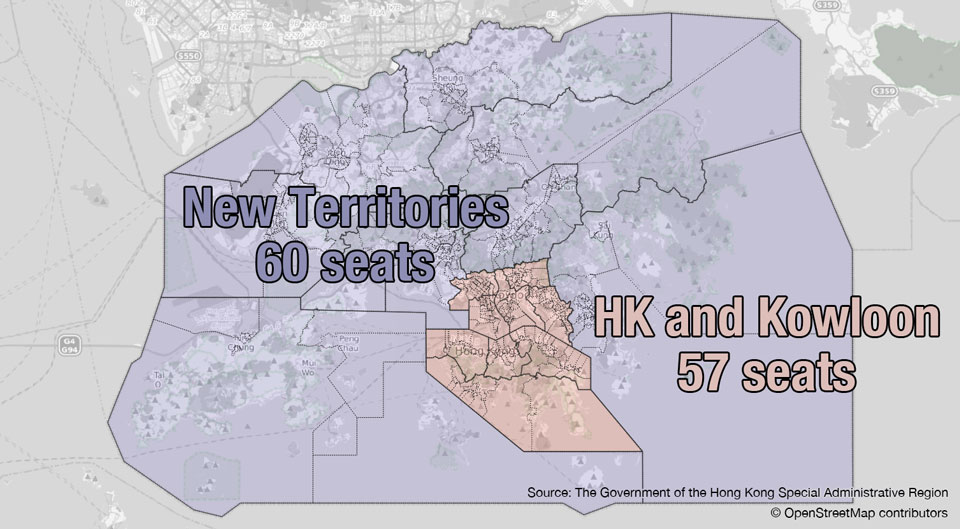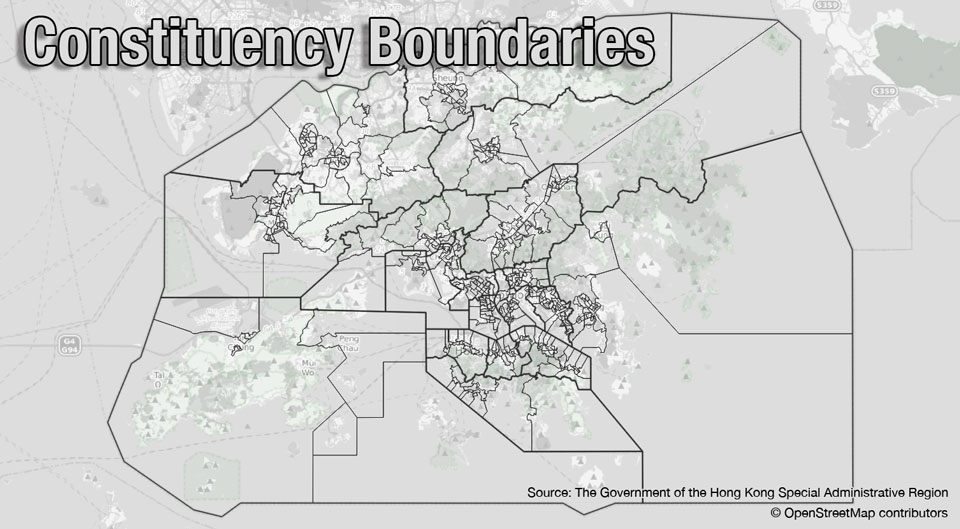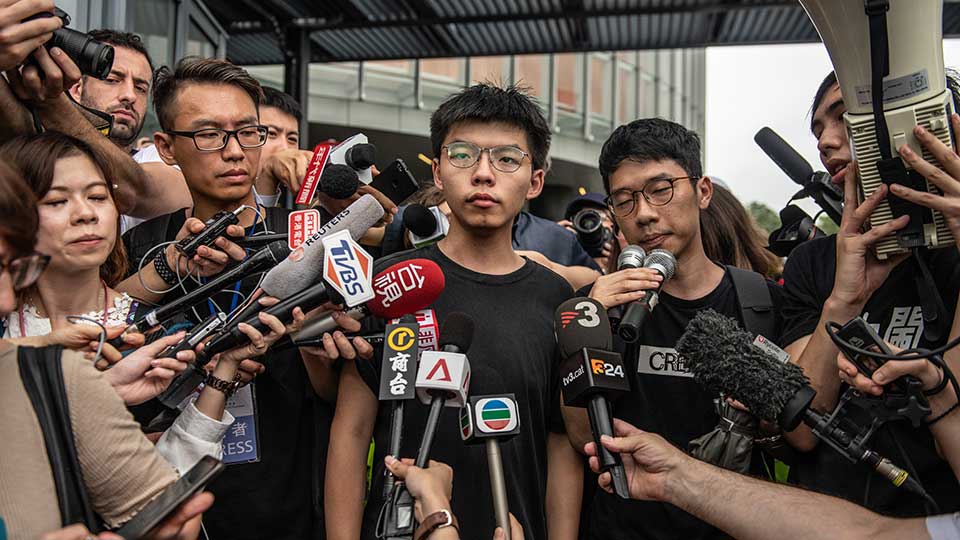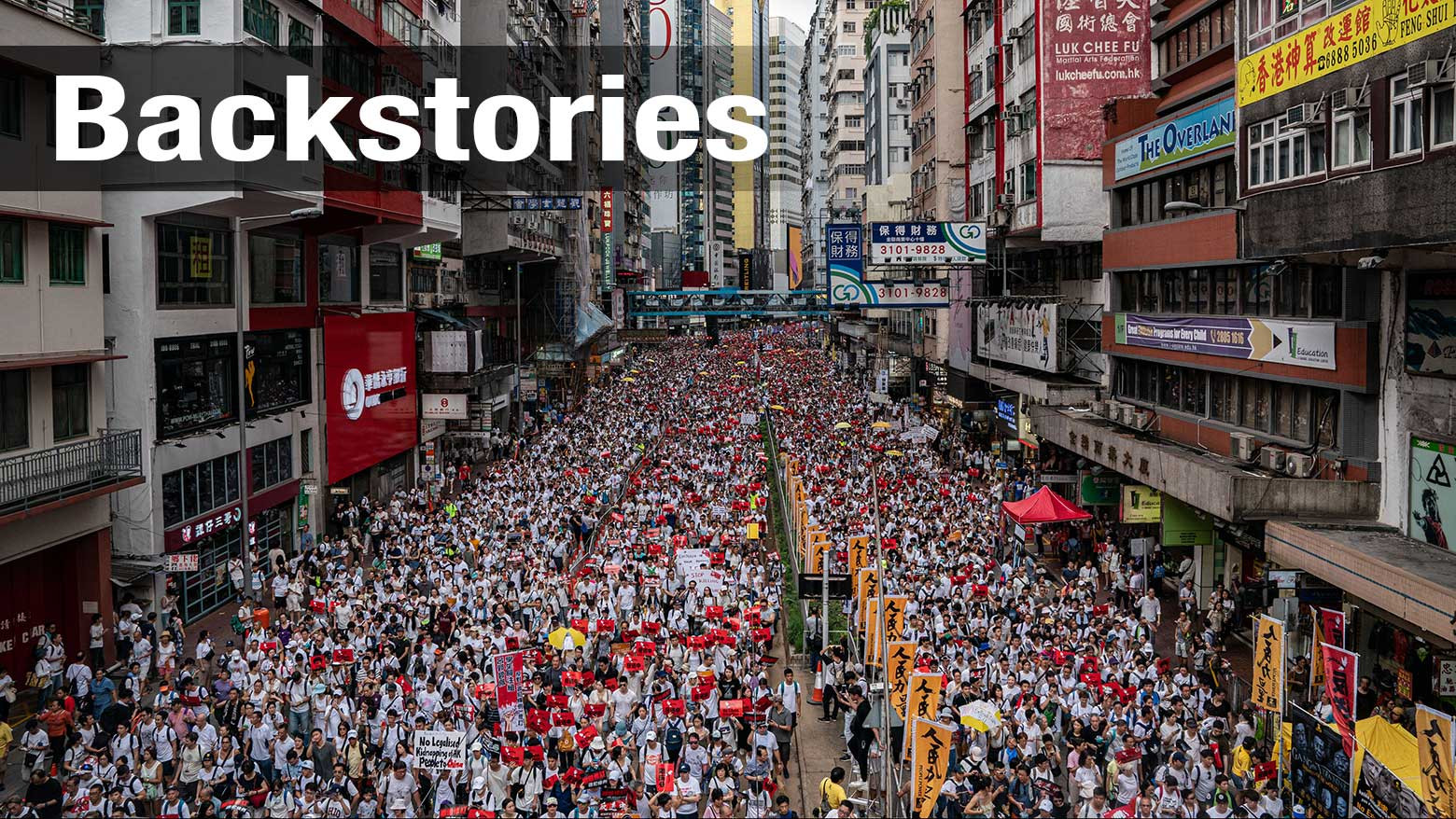What are the district councils?
Hong Kong has 18 district councils, and over 450 councilors. The members are mainly responsible for proposing policies on local issues, such as road construction and maintenance. They have no power to enact laws or set budgets.
But they do have some influence over the choice of Hong Kong's leader. The Chief Executive is elected by 1,200 deputies of the election committee. 117 members, about 10 percent of the total, are chosen from the district councils.
Currently, the pro-Beijing camp holds all 117 seats. But that could change in the upcoming election.

The most democratic election in Hong Kong
There are three major elections in Hong Kong: for Chief Executive, Legislative Council and district council.
The Chief Executive is chosen by an election committee dominated by pro-Beijing members. About half the Legislative Council members are elected from interest groups with strong links to mainland China.
But in the district council elections, voters choose the 452 members directly in single-seat constituencies.
District council elections were first held in 1999, two years after the handover of Hong Kong. The upcoming poll will be the sixth. Pro-Beijing candidates have taken a majority in the last three votes.

The elections drawing major attention
The elections are the first to be held since the protests began. The Chinese government has said the protests represent a small group of rioters and that Hong Kong citizens in general support the government. The elections will show whether that's true.
A record 1,090 candidates are running. In the previous elections, some candidates ran unopposed. That's not likely to happen this time.
Turnout is expected to be high too. About 4.13 million voters have registered. That's about 440,000 more than last time.
Pro-democracy camp in the lead
Many people who participated in the protests are running as candidates in the elections.
Chief Executive Carrie Lam is struggling. A poll conducted in October by the Hong Kong Public Opinion Research Institute put her approval rating at less than 15 percent.
But in a blow for the pro-democracy camp, the Electoral Affairs Commission has barred Joshua Wong, one of the leaders of the 2014 Umbrella Movement, from running. Hong Kong introduced a system of screening candidates in 2016. Many people have been refused permission to run in the election because they're seen as pushing for Hong Kong's independence or opposing the Basic Law. The Commission's decision is certain to draw objection from citizens and likely to fuel further protests.

How will the elections go?
Professor Toru Kurata of Rikkyo University says the district councils have been the stronghold of the pro-Beijing camp and there will be a revolutionary change if the pro-democracy camp wins a majority there.
Kurata says the elections could also offer an opportunity to restore stability to Hong Kong's politics disrupted by the protests. But there's a question over whether the vote will even go ahead. Local media have suggested the Hong Kong government might postpone or cancel it, using public safety as a pretext.
As Kurata puts it: "As far as I hear, Beijing is reluctant to hold losing elections."
But if that happens, the protests are sure to escalate, The government in Hong Kong will be watching the situation closely as it considers whether to go ahead with the vote.

